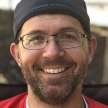Why Wisdom Is Scarce
Knowledge is everywhere so why so many foolish people?

How many times a day do you go to the internet to search for a particular piece of information?
How often do you think — as you search — that you “should probably know this?”
How often do you forget within a day or two that bit of information you looked up only to have to look it up again?
It happens to all of us. Access to information is pervasively simple. There is even a growing body of pseudoscience (even whole cloth) that suggest we’re not wired to remember things.
You won’t have to think too hard to dismiss that notion as balderdash. If you accept that our ancestors were hunter-gatherers then you have to accept that they would have to remember all kinds of things just to find food. They had to remember which berries they could eat and which ones would kill them. They had to remember how herds migrated. They had to remember how to make the necessary tools to prepare their food.
What’s happening today, however, is that thousands of bits of trivial and useless information bombard us daily. It’s the stuff our brains have no use for. But, like the empty carbs in the donut I just ate, the more we “feed” our brains with the feel-good cocktail of clickbait and social media, the more we crave it. And, the more we indulge in it, the less likely we are going to retain much — if anything — of what we’re exposed to because it’s just not important, relevant, or useful.
Even worse, the big negative impact is that by switching our focus so rapidly, our ability to focus in a way that lends itself to learning diminishes. Furthermore, rapid-fire information reduces the likelihood that we’ll internalize the information by really thinking about and reflecting on it.
-----
Wisdom, as some have defined it, is the practical application of knowledge. Wisdom and genius are related in that wisdom often involves making intuitive leaps in combining seemingly unrelated bits of information. More than that, however, wisdom involves a healthy dose of common sense (which really isn’t common). I’ve known some very bright people who are prone to making the same mistakes repeatedly. That’s genius without wisdom at work.
It is possible to gain real knowledge in a particular functional domain by studying the best materials available on the subject. That gain requires consistent and careful effort in order not to be distracted by low-quality information, half-truths, and outright lies.
Suppose, for example, you’re an engineering student at your local university. You spend 4 or 5 years studying all the material put in front of you on your particular discipline. Then, you graduate and go to work. Suddenly, you feel like a college freshman again. You struggle to apply the knowledge you’ve gained. You have knowledge, for sure, but lack the ability to apply that knowledge in most of the real-world situations in front of you.
If you’re fortunate to work for a good firm, you will get put with a coworker who is not only a good engineer but a great mentor. She will impart her wisdom about how to apply the knowledge you’ve gained to your responsibilities. Over time, the knowledge becomes wisdom; an ability to make engineering decisions without having to think quite so deeply.
Outside of traditional work, the same holds true. Another example: almost no one is born being a good parent. Most people go to books and/or older family members or friends for advice. Then, they practice sufficiently to get good at some particular aspect of parenting (like changing diapers).
Unfortunately, a crisis of epidemic proportions is unfolding: fewer people than ever are gaining real wisdom.
Why?
Because there are so many distractions — self-imposed and otherwise — it has become increasingly difficulty for knowledge to become wisdom. Knowledge only becomes wisdom when time and effort are put into integrating the knowledge in useful ways. Then, you have to use it to better yourself and help those around you.
In broad terms, an increase in information should result in an increase of global knowledge which, in turn, should result in increased wisdom. In short: an intellectual revolution should be taking place. However, for large swaths of the population, the opposite is true. Information isn’t being converted to knowledge. Good information is falling through the cracks in our focus while the pervasive, loud, and often untrue takes a foothold in the mind.
-----
How do you fix it? How do you turn knowledge into wisdom?
In 2004, Scott C. Brown created a basic model for how experiences and learning are translated into wisdom.

The basic idea:
- To obtain wisdom, you must first want to obtain wisdom. “Orientation to Learning” is the key initial and persistent ingredient. This requires more than casual observance and eschews the ideas of a fixed mindset and holding blindly to one’s own opinions.
- Through experiences, alone and with others, the learning-centric approach provides opportunity to, well, learn from life experience.
- Next, reflection is required to assimilate the knowledge gained via experience and interaction with others. This is about contemplating what you’ve learned.
- Integration is looking for and finding ways to apply the newly gained knowledge to life. This is generally done by looking back at previous and related life experience and seeing patterns of application for the future.
- Application is putting what you gained into practice. It is reflection and integration in action.
- As you continue to practice — always keeping an open mind to learn new things — wisdom is the natural result.
To paraphrase Alireza Atarodi¹:
It’s evident that wisdom has a positive impact on life, and that the life not based on wisdom will eventually collapse.
The “collapse” Atarodi references is both individual and societal. You have only to look at the general lack of civil discourse among the supposed leaders of this nation to see that the collapse began half a generation ago.
Wisdom is scarce because of the noise. The antidote is having an open, curious mind, and not holding too tightly to your own opinions, even when you believe they’re true.
Thanks for reading!
---
¹”Transforming Knowledge into Wisdom: a Grounded Theory Approach”, Atarodi, Hariri, and Babalhavaeji, 2019. Atarodi, et al, don’t take the time to define what “eventual collapse” are in regards to a life devoid of wisdom.
About the Creator
Aaron Pace
Married to my best friend. Father to five exuberant children. Fledgling entrepreneur. Writer. Software developer. Inventory management expert.






Comments
There are no comments for this story
Be the first to respond and start the conversation.